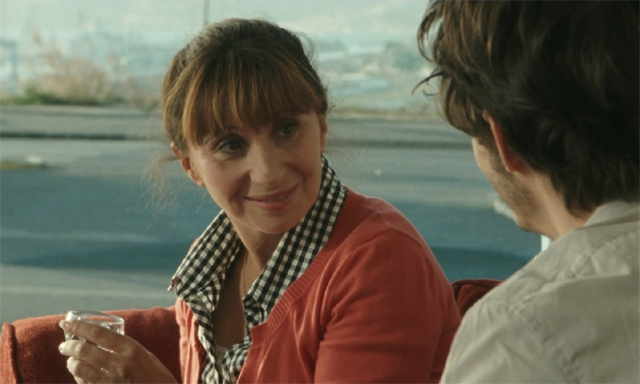 Film: The Snows of Kilimanjaro
Film: The Snows of Kilimanjaro
Country: France
Year of Release: 2011
Director: Robert Guédiguian
Screenwriters: Robert Guédiguian, Jean-Louis Milesi
Starring: Ariane Ascaride, Jean-Pierre Darroussin, Gérard Meylan, Marilyne Canto, Grégoire Leprince-Ringuet
Review: Peter Machen
♥♥♥½
You would never know it from the fantastical offerings that populate most cinema screens but there has, over the last year or two, emerged a distinct genre of film that could be described fairly accurately as recession dramas, a genre which focuses not on housing bubbles or the sub-prime crisis but on the human costs of a global economy that seems to be faltering with ever-increasing persistence.
The Snows of Kilimanjaro is a strong example of this emergent form. Based not on the Hemingway novel of the same name – which provided the basis for a 1954 film starring Ava Gardner and Gregory Peck – but on the Victor Hugo poems Les Pauvres Gens (How Good are the Poor), the film chronicles the response of an ensemble of characters to the recessionary times in which we live.
The Hugo reference is telling – for, like Charles Dickens, the poet and novelist was writing at a time of great human suffering and inequality, decades before the concept of universal human rights had become a widely hold notion. In The Snows of Kilimanjaro – and several other films I’ve seen this year, none of them on circuit – there is the strong hint of a slide back towards a world where poverty and inequality is the accepted norm.
The film begins with 20 names being drawn from a box. At first, it seems as if the men whose names have been drawn are being selected for work, but in fact they are being retrenched in order to save the company for whom they work. Among them is Michel, a life-long socialist and unionist who has nonetheless managed, by the time he has entered his 50s, to establish a precarious toe-hold on the lower rungs of the middle-class ladder, something he is aware that he is despised for in some quarters, particularly by those who are too young to know about the struggles in which he and his comrades participated.
Accepting his retrenchment with equanimity, Michel lives happily with his pragmatic and compassionate wife Marie-Claire. On the occasion of their 30th anniversary – to which Michel invites his fellow laid-off workers – they are given two air-tickets to visit Kilimanjaro as well as a wad of cash. But the couple never get to Tanzania because – several nights later, at a poker game with their close friends Raoul and Denise – their money and air-tickets are stolen in an armed hold-up by two masked men.
The two couples are traumatised, but their trauma acquires layers of additional complexity when Michel discovers that one of the attackers is a co-worker who is desperately trying to support himself and his two young brothers who have been abandoned by their mother. As Michel and Marie-Claire find out more about the young man and his small family, they are forced to question the fabric of their lives and the value of their socialist inclinations.
It is this gap between the promise of post-war socialism and its commitment to solidarity and a 21st century financial machines incapable of such a thing that provides much of the film’s texture and gentle philosophical enquiry. There is a nicely constructed scene in which Marie-Claire asks her husband what they might have thought of themselves if they were their younger selves passing by. Would they describe themselves disparagingly as middle-class? Would they see two people who have achieved happiness by living their lives without making others suffer? Or – and it is not said, but it lies there between the lines – would they see lives defined by compromise?
Filled with strong performances, considered writing and nuanced direction, The Snow of Kilimanjaro is an intelligent exploration of the tensions of 21st Century social and economic reality. Ultimately, though, the film lets itself down by pretending that things have turned out fine – sort of. In its bubbly final scene, the film seems a little drunk and incapable of appreciating the complexity of what has came before. But if director Robert Guédiguian betrays himself, his film and his audience with an unsatisfactory ending, it doesn’t invalidate the engaging complexity that has preceded it.
